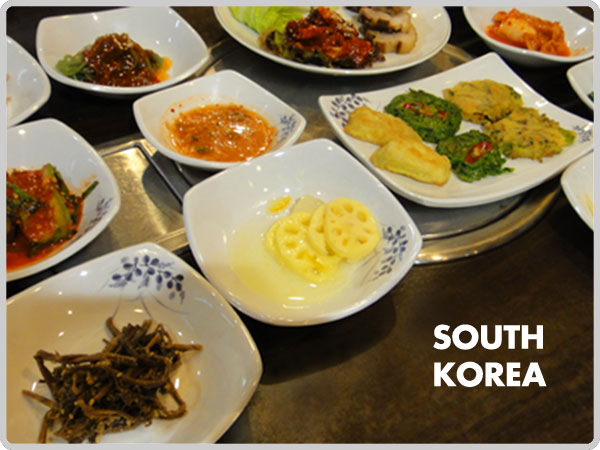
VIDEOS
Eating Live Octopus in Korea
Erik samples the Korean delicacy of sannakji — live, squirming, octopus — in a restaurant in Seoul, South Korea. (This video corresponds to travel dispatch, “Seoul Man,” from May 2010.)
ENTRIES FROM THE GLOBAL TRIP BLOG CHRONICLES
Seoul Man
From the trip blog: "The Global Trip: Chinese Leftovers and Other Asian Appetizers"
Posted May 05, 2010
DAY 14: 8:49 p.m. South Korean Time: A BMW 5-Series rolled up to pick me up at the Inter-Continental Hotel in the heart of downtown Seoul. However it was not as chichi as it seems, for I was not staying at the 5-star luxury hotel (it was only a meeting point), nor did the Beamer belong to the person driving it. (It was his mom’s.)
Behind the wheel was Hong, a friend from back during my days working at a particular interactive agency in New York a couple of years ago, who was now living in the capital city of his home country, South Korea. Hong was the same as I remember him, with his American voice, kind demeanor, and hip sense of style. “Welcome to Seoul,” he welcomed me. “How was your flight?” He put the Beamer in drive and we head out onto the streets, filled with the twinkling red brake lights of night time traffic.
Korean Things On The Other Cinco De Mayo
From the trip blog: "The Global Trip: Chinese Leftovers and Other Asian Appetizers"
Posted May 07, 2010
DAY 15: In the United States, Cinco De Mayo, which translates to “fifth of May” (or alternatively, “five of mayonnaise”), is a day in which happy hour-going yuppies and college kids imbibe buckets of Coronas during a long drinking binge, while Mexican busboys wonder what the big deal is; it’s not even a real national Mexican holiday. In South Korea, the fifth of May has nothing to do with Mexico (or mayonnaise for that matter) for it is the national holiday of Children’s Day — the opposite day of Mother’s Day or Father’s Day — where Korean parents take time off to spend with their kids.
Not Forgotten
From the trip blog: "The Global Trip: Chinese Leftovers and Other Asian Appetizers"
Posted May 09, 2010
DAY 16: American Korean War veterans often cite their war as “The Forgotten War,” for other wars have taken the spotlight in the the long history of American warfare. Perhaps more media attention goes to World War II since America and the Allied Nations “won” that war. Perhaps more attention goes to Vietnam and Iraq to point out America’s “blunders.” (Both “won” and “blunders” are in quotes depending on your political sensitivity.) Perhaps the Korean War takes a back page to others because it ended in a stalemate, the result being the fact that there are now two countries: a Socialist North Korea (officially the DPRK or “Democratic People’s Republic of Korea”) and a democratic South Korea (officially the ROK or “Republic Of Korea”).
To the mainstream consciousness (or perhaps just mine), the most attention the Korean War has gotten is the fact that it served as the backdrop for the film-inspired 1970-80s TV sitcom series M.A.S.H. — cleverly starting its television run as a commentary for the then current Vietnam War — where, to the memory of my too-young-to-really-remember-anything childhood knowledge, the Korean War was the one where Jamie Farr went around and dressed in drag all the time. (Cue laugh track.)
 When he’s not making a living as an
When he’s not making a living as an 